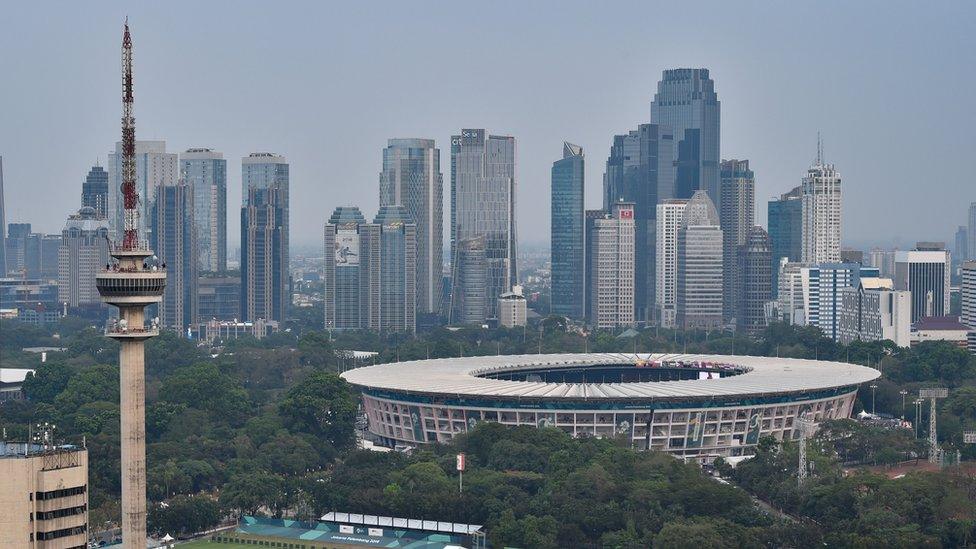Indonesia: Why would a country change its capital city?
- Published
- comments

Jakarta is one of the fastest sinking cities in the world
Indonesia is building a new capital city because its current one is sinking.
The country's parliament has passed a law approving the relocation of its capital Jakarta to a site 1,300 kilometres (800 miles) away.
Indonesia is made up 17,000 islands and the country, which is north of Australia, is the biggest island nation in the world.
The current capital city, Jakarta, sits on swampy land on the large island of Java, but has become crowded, polluted and is sinking quickly.
The new capital city will be called 'Nusantara' on an Indonesian province on the island of Borneo, known for its jungles and orangutan population.
Why is the capital city sinking?
Flooding and water unable to drain away into the sea is a big problem for Jakarta
Jakarta is home to over 10 million people. But it's sinking at one of the fastest rates in the world.
The city is on the coast and is on very swampy land. It's also crossed by 13 rivers.
Half of Jakarta is below sea level. But why?
Well, lots of the groundwater is taken out to be used for drinking water and for washing. This makes the city sink further into the ground.
Researchers say by 2050 - less than 30 years away - large parts of the Jakarta could be totally underwater!
In the last 10 years, the city has sunk by 4m in some places (that's more than 13 feet). That's about the same height as two Dwayne 'The Rock' Johnsons standing on top of each other!
On average the city is sinking 1-15cm a year.
Jakarta, the current capital is home to over 10 million people.
In the last 10 years, it's sunk by more than 2.5 metres!
Air pollution and traffic jams in the city are notorious.
Government ministers have to be escorted by police convoys to get to meetings on time.
What do people think about the move?
Critics have argued that the construction of the new city will lead to the expansion of palm-oil plantations and logging in an area that is full of diverse wildlife and lush rainforests.
Groups representing the indigenous people of Borneo have also said they are concerned, saying that their environment and culture could be endangered by the move.
Some have also complained that the new name could be confusing because Nusantara is an old Javanese term used in Indonesia to refer to the country as a whole.
But Indonesia's planning minister said the capital's new name was chosen by the president because it reflected Indonesia's geography and was iconic internationally.
The move will cost an estimated 466 trillion rupiah (拢23.8bn) and will be one of the biggest projects the Indonesian government has ever been involved with.
Have other countries changed their capital city?
- Published22 March 2019
- Published14 February 2019
- Published2 October 2018
